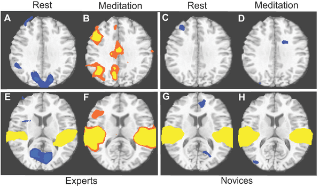Why compassion

Compassion is the antidote to cruelty and callousness.
The deep heart of humanity

Understanding pain and moving through it.
What it means to live with compassion

Compassion is a way of life.
Reasons for hope

Change has happened and is happening now.
A Vesak Message from Ven. Bhikkhu Bodhi
Why compassion is courageous

To feel, know, and seek to address suffering – that takes courage.
Conscientious compassion

Why conscientious compassion is the quality we need most in the world today.
To rescue a world

One seismic shift in our way of thinking can give us the capacity to build a fairer, just, and inclusive world.
One compassion many means: a big two analysis of compassionate behavior
This paper reviews relevant theory and findings from compassion science through the lens of the Big Two Framework…which distinguishes between two core dimensions of social cognition, namely communion (i.e., warmth, morality, and expressiveness) and agency (i.e., dominance, competence, and instrumentality).
Why inclusion matters for compassion

Creating inclusive cultures is a vital part of acting with compassion.
“Safe in My Own Mind:” Supporting Healthy Adolescent Development Through Meditation Retreats
A Deep Dive into Mindfulness
Multilevel cultural evolution: From new theory to practical applications.
Report of the ACBS task force on the strategies and tactics of contextual behavioral science research.
“Third-wave” cognitive and behavioral therapies and the emergence of a process-based approach to intervention in psychiatry.
Towards a unified framework for positive psychology interventions: Evidence-based processes of change.
A Case for Compassion
Why we need compassion – now.

The world faces multiple crises. We can only address them by coming together.
A model for cognitively-based compassion training: theoretical underpinnings and proposed mechanisms
The article “The Role of Compassion in Building Sustainable Organizations: Implications for Human Resource Management” examines the role of compassion in building sustainable organizations and its implications for human resource management (HRM). The authors argue that a compassionate approach to HRM can improve employee well-being, foster a positive work environment, and ultimately lead to sustainable […]
Effects of mindful-attention and compassion meditation training on amygdala response to emotional stimuli in an ordinary, non-meditative state
The article titled “The underlying anatomical correlates of long-term meditation: Larger hippocampal and frontal volumes of gray matter” investigates the effects of long-term meditation on brain structure. The study found that long-term meditators had larger gray matter volumes in areas associated with attention, sensory processing, and emotion regulation, particularly in the prefrontal cortex and the […]
A new era for mind studies: training investigators in both scientific and contemplative methods of inquiry
The article titled “Alterations in Brain and Immune Function Produced by Mindfulness Meditation” discusses the effects of mindfulness meditation on brain function and the immune system. The study found that participants who engaged in an eight-week mindfulness meditation program showed changes in brain activity in areas associated with attention and emotion regulation, as well as […]
Effects of Eight-Week Meditation Training on Hippocampal Volume: A Comparison of Mindful Attention Training and Cognitively-Based Compassion Training
The article titled “Effects of Eight-Week Meditation Training on Amygdala Reactivity to Emotional Stimuli in Patients with Generalized Anxiety Disorder” examines the effects of an eight-week mindfulness-based intervention (MBI) on amygdala reactivity to emotional stimuli in patients with generalized anxiety disorder. The study used functional magnetic resonance imaging (fMRI) to measure the changes in amygdala […]
Feasibility of Cognitively-Based Compassion Training (CBCT) for breast cancer survivors: a randomized, wait list controlled pilot study
The article titled “Mindfulness-based interventions for people diagnosed with a current episode of an anxiety or depressive disorder: a meta-analysis of randomised controlled trials” is a meta-analysis of randomized controlled trials examining the effectiveness of mindfulness-based interventions (MBIs) for people with anxiety or depression. The authors found that MBIs were associated with significant reductions in […]
A model for cognitively-based compassion training: theoretical underpinnings and proposed mechanisms
The article “The Role of Compassion in Building Sustainable Organizations: Implications for Human Resource Management” examines the role of compassion in building sustainable organizations and its implications for human resource management (HRM). The authors argue that a compassionate approach to HRM can improve employee well-being, foster a positive work environment, and ultimately lead to sustainable […]
Enhancing Compassion: A Randomized Controlled Trial of a Compassion Cultivation Training Program
The article titled “Development and Validation of Brief Measures of Positive and Negative Affect: The PANAS Scales” discusses the development and validation of the Positive and Negative Affect Schedule (PANAS) scales, which are widely used measures of positive and negative affect. The authors conducted a series of studies to develop and validate the brief version […]
Mindfulness-Based Interventions: An Emerging Phenomenon
The article titled “Mindfulness-Based Interventions in Context: Past, Present, and Future” explores the history, evolution, and current status of mindfulness-based interventions (MBIs) in different contexts. The authors examine the evidence for the effectiveness of MBIs in treating different mental health conditions, as well as their potential applications in various settings, such as schools, workplaces, and […]
Is compassion the same as empathy?

Compassion v. Empathy: used as synonyms, but they are different.
Compassion is a full-bodied experience

Compassion changes our brains
If compassion is hard-wired, why do people do bad things?

Compassion is hardwired – but that doesn’t mean it can’t be suppressed.
The benefits of compassion

Compassion is as vital to us as the air we breathe.

